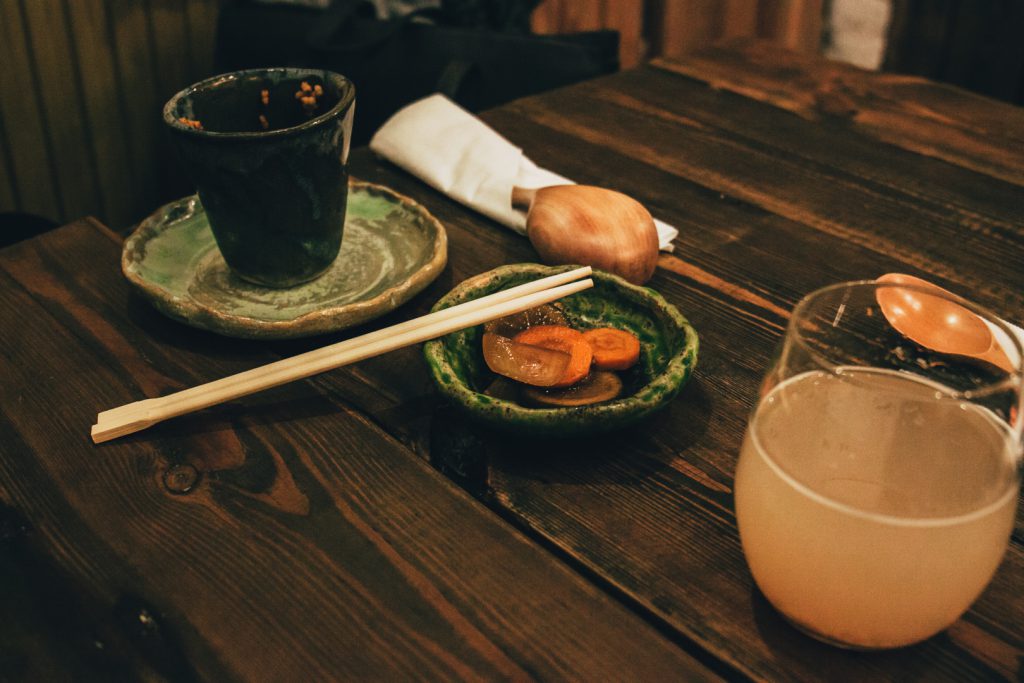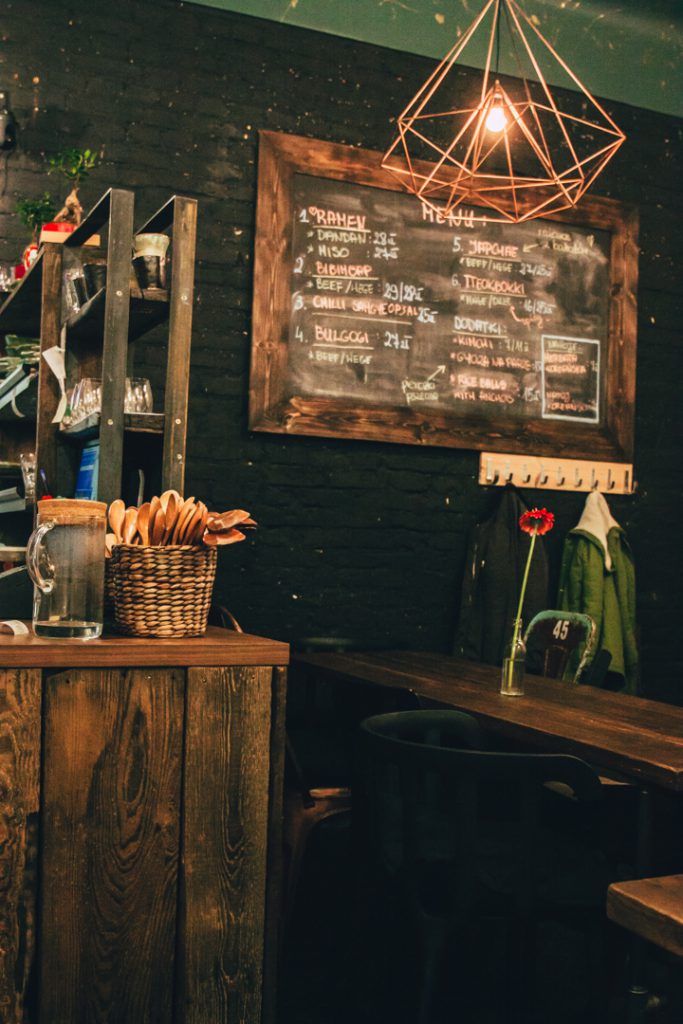Koreanka is a new place in town. It first appeared at Nocny Market, then for a minute it existed in a form of a pop-up restaurant. I tried one of their sandwiches at Nocny Market, but was not impressed. Now Koreanka is working in full swing and much have changed. It’s a place where Warsaw residents can come and devour huge bowls of Korean goodness.
The restaurant is located in resident building on Koszykowa street, right next to popular Hala Koszyki. Brave move. The restaurant is located in a yard, so you have to ring the bell to get inside. I never experienced that before, but to be honest it’s a neat trick. It’s adding to the “homely” atmosphere of the place. You feel as if you’re going to someone’s house for dinner. The restaurant itself is tiny, full of natural wood, warm and cozy, with a hint of Pinterest-y rose gold elements here and there. I like it.
Culinary trends
Korean cuisine was predicted to be one of the biggest culinary trends of 2017 in Poland. It reached Western countries earlier, but in our country the “bibimbap craze” was yet to come.
When Korean cuisine first appeared in Poland it was often just an addition to sushi restaurants. It did not have it’s own place on foodie map. The first strictly Korean restaurants started to appear a few years back. They were mostly directed at businessmen with their rather expensive lunch menu. Then Korean food was aspirational just like sushi. Eating Korean meant being able to afford it. The Asian street food trend came later. Now the most hip food markets and foodie events are Asia-oriented. Cheaper versions of Korean restaurants started to appear in biggest Polish cities as well. Now little Korean shops, food trucks and restaurants start to blend into Polish cityscapes.
Culinary tourism is an important aspect of popularisation of ethnic cuisines. Airplane tickets are cheaper and cheaper and backpackers’ way of life is increasingly becoming a trend in Poland. What does it mean for restaurant owners and chefs? Nowadays everyone is a culinary expert. Visiting Korea means knowing „the true Korean food” and being able to rate the authenticity of restaurants’ menu. It’s more or less impossible for a foreign chef to cook Korean. If you’re not Korean you’re not making Korean food. If you are Korean you might still not be cooking authentic Korean cuisine in the eyes of the restaurant guests. They’ve been to Korea, they’ve tasted Korean food, so they know what should and shouldn’t be called Korean. Authenticity means constant battle over what can and what cannot be called „Korean”.
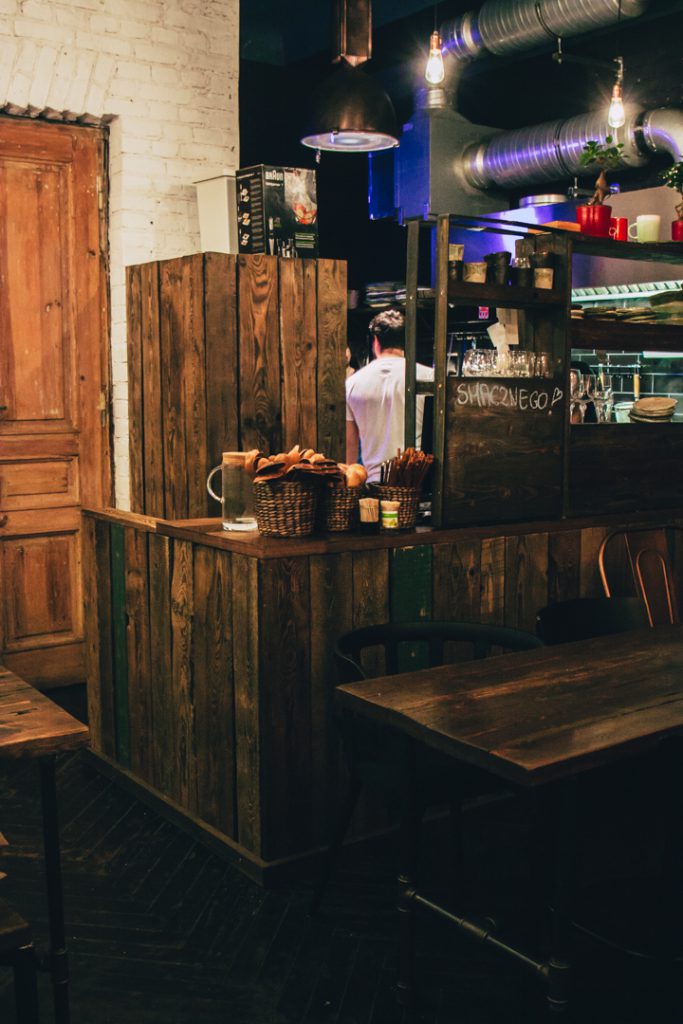

Authenticity is one of marketing strategies used by restaurateurs, bloggers, authors as well as markets and food manufacturers. Koreanka restaurant is supposedly serving real Korean food, but there was some criticism concerning this statement. Popular polish asian food-oriented blogger claimed it’s a watered down version of Korean cuisine, appropriate for polish taste buds not adjusted to oriental flavours. Is Koreanka authentic? I don’t know. I’ve never been to Korea. And even if I did eat food in Korea, I still don’t believe it would make me an expert. Frankly, I don’t even care if it’s Korean or Koreanish. What’s important to me, is that it’s really tasty!
What’s on the plate?
The menu in Koreanka restaurant is not big. There are a few dishes, you can order every one of them with meat or in vegetarian version. I like it when the menu is not overly complex, especially in restaurants serving food that I’m not very familiar with. It makes the decision easier. Before I discuss our order and what we thought about the dishes, I need to warn you: the portions are huge! We didn’t order any starters, went straight for the mains, yet still wasn’t able to finish what we were given. That’s another thing that makes the experience at Koreanka more “homely”. It’s as if your grandma was serving you one of her ginormous plates. I’m not complaining. I loveeee food.
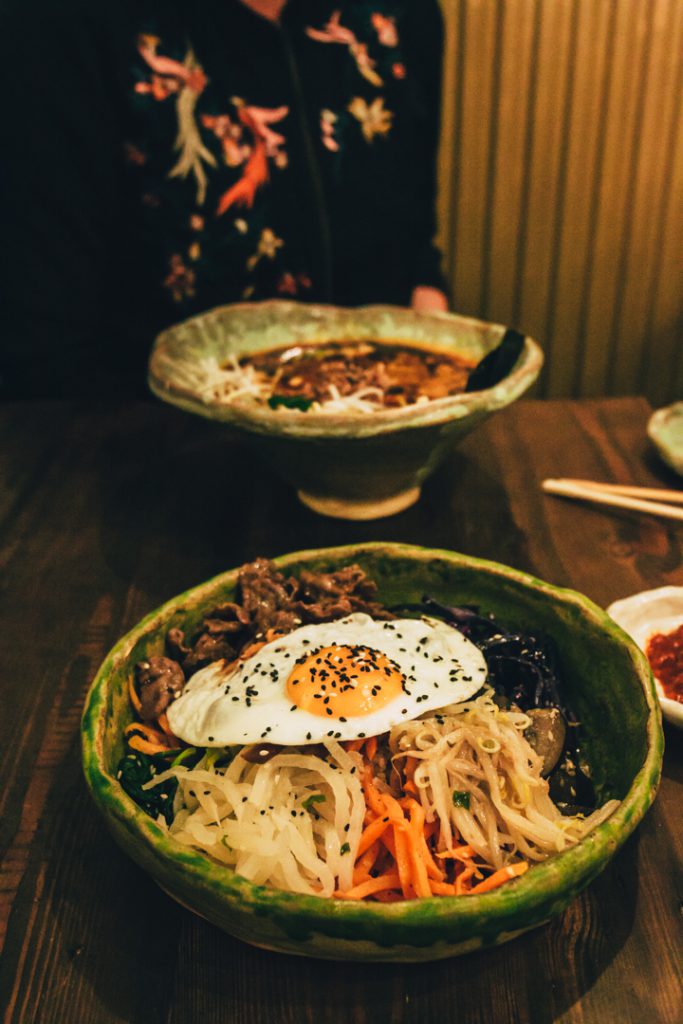
Ok, so what did we actually eat? I ordered bibimbap, which is considered the most eye-pleasing of Korean dishes. It is served with all the ingredients carefully separated and colour coordinated. Before eating the ingredients should be mixed together. Only then the real taste of the dish is being created. The word literally means “mixed rice”. Bibimbap is served as a bowl of warm white rice topped with namul (sautéed and seasoned vegetables) and gochujang (chili pepper paste), soy sauce, or doenjang (a fermented soybean paste). A raw or fried egg and sliced meat (usually beef) are common additions.
It’s definitely the most popular Korean dish of all available in Korean restaurants and food trucks across Polish cities. It was also the first one that became recognizable and associated with Korea. It is considered the ultimate comfort food of Korean people. I liked the vegetables added to bibimbap at Koreanka restaurant, particularly the use of aubergine. They seemed a bit unconventional, but made the food taste even more home-made. I’ll definitely come back and order it again.
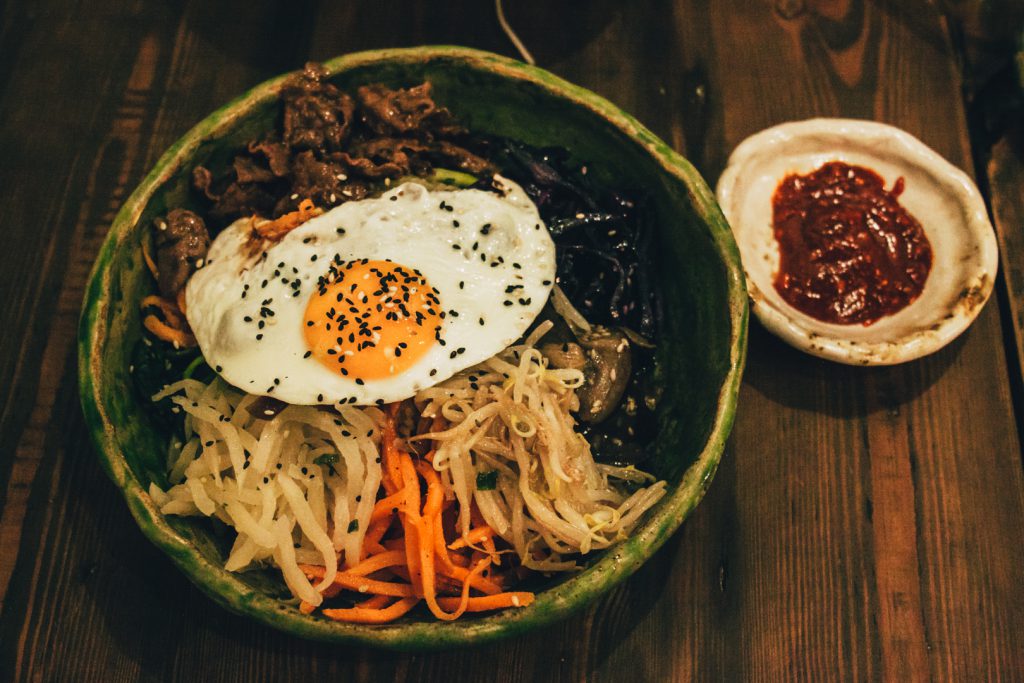
The week we visited Koreanka restaurant was the same week we attended ramen workshop at Polish Your Cooking culinary school. We enjoyed the cooking class, knew quite a bit about Japanese ramen at this point, and were curious how the Korean version of this trendy soup tastes like. Again, the portion was huge, it was served in a beautiful bowl and it tasted amazing! It was spicy, but not too hot, full of many different toppings and perfectly seasoned. We ordered the meaty version (same with bibimbap) and I must admit that the meat was prepared really well. The difference between japanese and korean ramen, that we noticed, was definitely the type of noodle they used. In Koreanka restaurant you’ll get udon noodles in your soup. We really enjoyed it in this version.
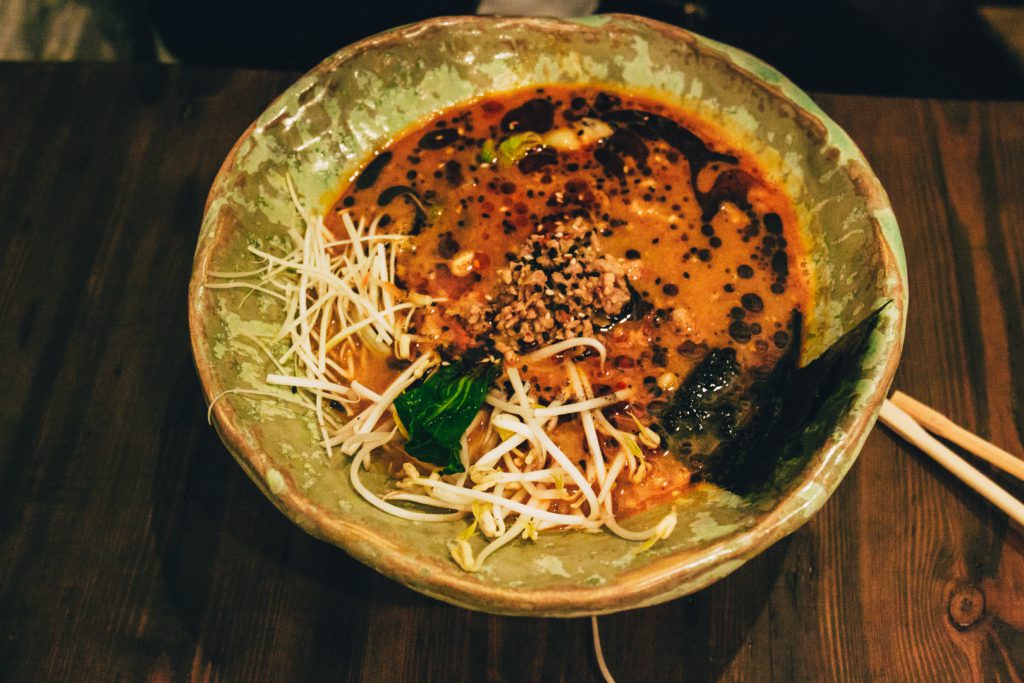
As for the drinks, we ordered korean drink made of rice (I believe so, but might be wrong) as well as a rice tea. Both were great. We didn’t order any starters, but received a portion of marinated vegetables as an appetizer. That was nice. Another thing I really liked were the dishes that all the food was served in. I seriously had to fight with myself not to put the beatiful bowls straight into my bag.
In conclusion, Koreanka restaurant is a great place and we’ll definitely be coming back for more. We’ve already recommended it to all our friends, so now we recommend it to you guys. We believe you’ll feel at home in this restaurant and won’t be dissapointed with the food they serve. Enjoy!
